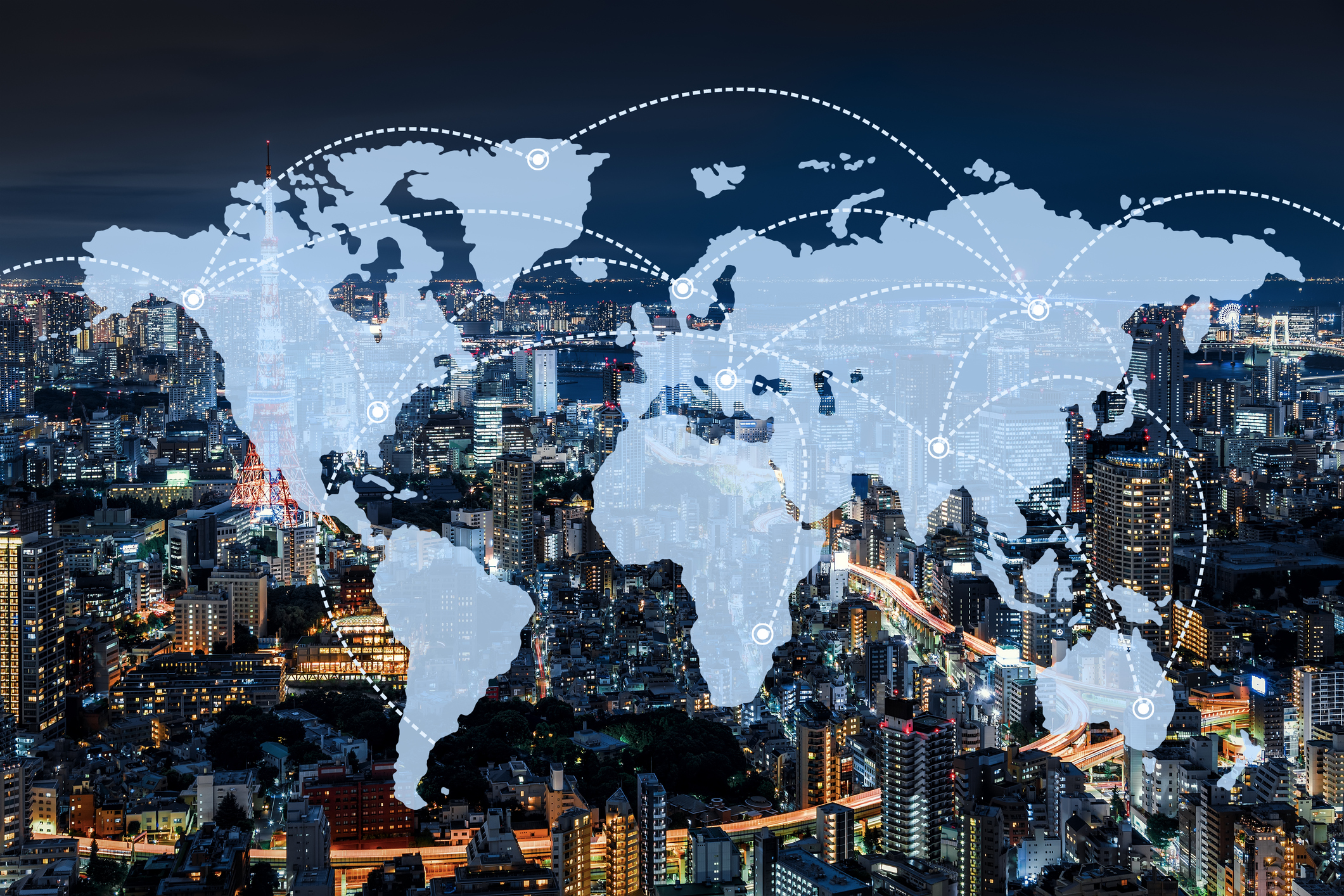
Global free trade is the backbone of modern, efficient economies. Countries that open their borders to trade enjoy a host of benefits. Economic growth increases. Businesses therein are more dynamic and innovative, and better able to connect with global expertise and the latest technologies via trading partners. Open-trade countries attract capital from around the world, which drives industrial expansion and fuels a virtuous cycle of innovation and enhanced competitiveness.
But despite the advantages it brings, global free trade is facing serious and growing headwinds. Zero-sum thinking is causing policymakers to respond to economic uncertainty and fears that automation will drive catastrophic unemployment by introducing significant market distortions to the global economy. These market-distorting policies can include tariffs, which raise prices on imported goods, fueling inflation and increasing costs for businesses.
They can also include subsidies to domestic industries, which can drive excess global capacity, harming businesses around the world and removing incentives for domestic companies to innovate—causing them to fall further and further behind global competitors over time.
Case study: Brazil
Brazil is a telling example of the effects of zero-sum thinking vis-à-vis trade. Latin America’s biggest economy, and the eighth-largest in the world, Brazil is also one of the world’s most closed economies. It is signatory to relatively few trade agreements, giving it preferential access to just 10 percent of the world market. According to the World Bank, it imposes tariffs on imports averaging 8.8 percent (compared to 0.6 percent in Chile), ranks 139th out of 190 countries in terms of ease of cross-border trading, and has export costs from Sao Paulo and Rio de Janeiro (Brazil’s main trading hubs) that are about twice the average of other Latin American countries.
Ostensibly, these policies exist to shield Brazilian workers and businesses from global competition—but in the real world, protectionism has done anything but help Brazil’s businesses, citizens, or government. By erecting barriers to global free trade, the country has in essence forced local demand to be met by local production. As a result, Brazilian businesses are unable to optimize costs via global trade, have little incentive to innovate, and lack opportunities to benefit from global trading partners’ expertise and cutting-edge technology.
The impacts on Brazil’s economy are dramatic—and primarily negative. According to the International Monetary Fund, the country’s economy is growing at about half the global average. Brazil’s debt load has been skyrocketing, and at 7.8 percent of GDP, its budget deficit has grown precipitously high. Meanwhile, total factor productivity has been on the decline—evidence that Brazilian innovation is failing to keep pace with the rest of the world—and unemployment has risen to 12.9 percent (compared with 3.4 percent in Mexico and 6.7 percent in Chile).
The net net? Due to its closed economy, Brazil is missing out on global economic growth and wealth creation.
Realizing this, Brazil now wants to wean domestic businesses off subsidies that shield them from foreign competition. At first glance, this would seem to be a good thing. And it will be, eventually, if Brazilians end up free to participate fully in the global economy—which among other things would give businesses and consumers access to paradigm-changing technologies like artificial intelligence (AI) applications and AI chips. But in the nearer term, it’s turning out to be an extremely painful process. For instance, when Brazil’s state-run oil company, Petrobras, stopped selling fuel at below-market prices and allowed it to map to global prices, it caused unrest among many consumers and businesses, forcing the resignation of Petrobras’ CEO and triggering a trucking strike that shut down the country for 10 days, causing food and fuel shortages and decimating tourism.
The bottom line: bad for everyone
Brazil is far from alone in making policy based on zero-sum thinking. For example, in 2017 the U.S. withdrew from the Trans-Pacific Partnership (TPP). And as this blog post is being written, the U.S. is trading tit-for-tat tariff announcements with China, the EU Canada, and Mexico, inducing fears of escalating trade wars.
But zero-sum competition is bad for everyone involved. Businesses become less innovative and less competitive. Fewer jobs are created to employ workers. Consumers enjoy fewer choices, while paying higher prices. Less tax revenue gets generated to run government—and because lower tax revenue means lower government spending, citizens benefit less from important government services.
To combat the lure of this kind of thinking, businesses and governments need to work to ensure that global trade is truly a win for all stakeholders. For instance, governments should make trade policy multilaterally to support economic interdependencies with other countries—and businesses should lobby them to do so. Perhaps most important of all, businesses and governments should provide robust workforce retraining programs to offset job offshoring and automation. Only by doing so can they keep high-value jobs within their borders—and ensure that workers have the skills that domestic businesses need to compete around the world.
The information provided here is for general informational purposes only and should not be considered an individualized recommendation or personalized investment advice. All expressions of opinion herein are subject to change without notice in reaction to shifting market conditions.
This material is not intended to be used as a general guide to investing, or as a source of any specific investment recommendations, and makes no implied or express recommendation, as appropriate strategies depend upon the client’s specific circumstances and investment objectives. Canyon Bridge does not represent that the information is complete and expressly disclaims any liability, including incidental or consequential damages, arising from errors or omissions in this publication.








